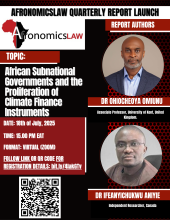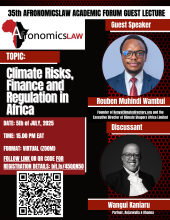Sovereign Debt News Update No. 143: The Ins and Outs of Cote d'Ivoire's Debut ESG Samurai Bond
In conclusion, Côte d'Ivoire's recent Samurai bond issuance exemplifies a crucial and growing trend among African governments: the strategic diversification of financing sources to mitigate risks associated with dollar volatility. While this move away from single currency dependence is prudent, it simultaneously underscores an increasing reliance on capital markets for funding. Despite Côte d'Ivoire's commendable fiscal performance, including its successful CFA franc-denominated issuance and a modest Samurai bond coupon, continuous and rigorous monitoring of its sovereign debt fundamentals remains paramount to ensure sustained fiscal health and responsible financing. Further, this trend must be carefully monitored for its potential to continue piling on unsustainable debt for those countries that have embarked on diversifying their creditor base.

